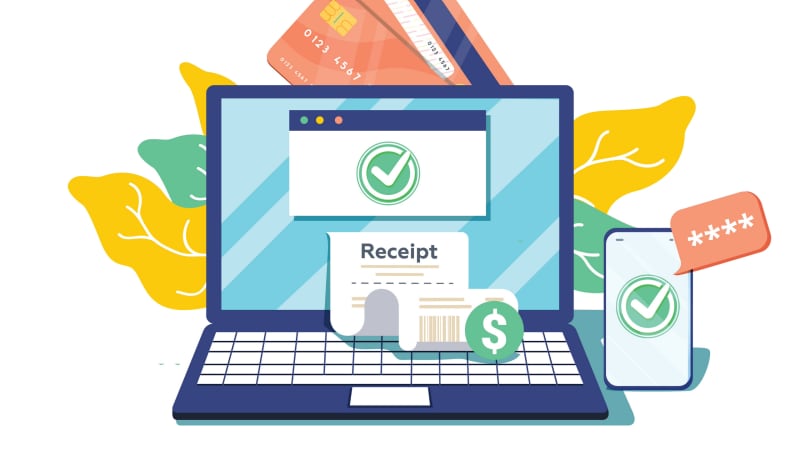Factors that impact your credit score

Quick insights
- Your credit score shows potential lenders a snapshot of your credit history.
- There are several different factors that can impact your score, such as credit utilization.
- Understanding these factors can help you improve your score.
Have you ever wondered what goes into calculating a credit score? Let's explore the factors that make up this important number.
What's a credit score?
Before reviewing the six factors that impact your score, it's important to understand how a credit score is determined. Your credit score isn't necessarily just one number. You can have dozens of credit scores that vary depending on the bureau providing the data, the purpose of the score, or the scoring model used.
In a typical model, your score generally ranges from a low of 300 to a high of 850. But most people fall somewhere in the middle. It may be easier to get a loan or credit card with a favorable interest rate, rent an apartment, or even get a job if you have a score in the "excellent" range, from 780 to 850. It can be harder to access the money, goods, and services you may need if you have a score in the "poor" range, from 300 to 659.
The 6 factors that impact your score
Different factors can go into determining your credit score. Chase Credit Journey® uses the VantageScore® 3.0 model, which calculates your score based on these 6 key score factors.
Other models, like the Fair Isaac Corporation (FICO®), may use different factors.
Let's take a closer look at the factors used by VantageScore 3.0 and how they affect your credit.
Payment history
Your payment history is a record of how often you pay your bills on time and how often you miss your payments. Regularly making on-time payments could help improve your payment history and give lenders confidence that you're likely to make future payments on time as well.
Credit history
Credit history tracks the types of credit accounts you have and how long you've had them open. Having a longer credit history and showing that you have different types of credit may improve your score. On the other hand, having a short credit history or showing just one type of credit on your report, like credit cards or short-term loans, may hurt your score.
Credit usage
Credit usage compares the amount of credit you've spent to what you can still borrow. Consistently using all your available credit, like maxing out lines of credit or carrying high balances on loans, may hurt your credit score. However, maintaining your balances at less than 30% of your credit limits may help your score.
Total balances
Your total balance includes all your credit balances. Maintaining low balances and making your minimum required payments on time may help improve your score and give lenders confidence that you're financially responsible.
Recent credit
Your recent credit activity typically covers credit checks made over the past two years. It factors in any new credit cards or loans that you've applied for or opened. A greater number of recent credit checks, also known as credit inquiries by lenders could indicate that you're in financial distress or opening credit lines irresponsibly.
On the other hand, fewer or no credit checks in your history may help your score.
Available credit
Your available credit has the least impact on your credit score. This factor takes into account the amount of credit you can access and use. Maintaining a low balance at or below 30% of your available credit could help improve your credit health.
Although you can't control how your score is calculated, you can protect your credit health by paying your bills on time, maintaining a mix of credit sources, avoiding high balances, and using only a portion of your total available credit.
In summary
Your credit score is a number, typically between 300 and 850, that shows potential lenders a snapshot of your credit history. Whether your score falls into an "excellent" range, "poor" range, or somewhere in the middle, it may impact your ability to access loans and services. A good credit score might make a difference in whether you get favorable rates when applying for credit.
Chase Credit Journey uses VantageScore 3.0 scoring model which calculates your score based on six factors. Each factor has a different impact on your score.Paying your bills on time, using only the credit you need, and maintaining different types of credit may have a positive impact on your credit health.



